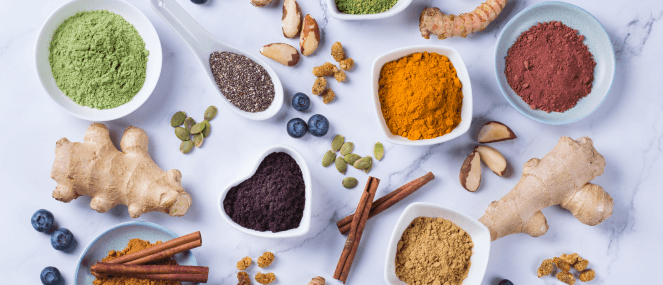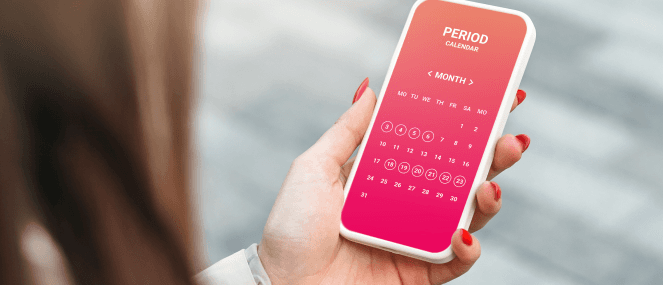
- Health hub/
- Stress relief & sleep support/
- How to preserve your sleep & energy levels for the festive period?


The silly season can literally drive us crazy with all the gifts and events to organise, planning for how to spend the holidays, all while frantically trying to finish up work tasks for the year.
If you have kids, add to that all the school commitments and events and you have a massive to-do list that feels like you’re running on a never-ending hamster wheel. This can take a huge toll on your energy and sleep levels when you are trying to squeeze every second out of every day to get all the things done and see all the people.
As it’s the holiday season, routines can go out the window too, with the tendency to have longer nights and the option to get up later in the day. With routines out of sync, this can hamper our circadian rhythm, our usual wake-up, sleep and meal times, which normally aid in getting us into an effective sleep routine.
Here are some tips to help get you through the festive season without feeling exhausted so you can be there for others and enjoy the festivities with your loved ones, which is what Christmas is all about.
Self care in Christmas
Amid all the Christmas commitments and obligations, your mind may be racing even more than usual at bedtime. It’s important to carve some time out for yourself, to take a break and recuperate from it all. This may help to preserve and maintain your energy for the duration of the festive season.
For example, yoga or some form of exercise can be great for you to receive the benefits of physical activity while taking a mental break from it all. However, anything that you enjoy counts as self-care, whether it be reading, journaling or meditation.
Learning how to relax will also help you to sleep better, much needed for your energy levels. Looking after yourself also means saying no to invitations or requests when you feel that it would be a stretch to commit to them.
Importance of sleep
According to the University of Cincinnati Health, (UCH) optimal sleep assists with regulating all of the systems in our body and is essential in optimising our ability to maintain alertness and energy while we are awake. Sleep also helps to lower cortisol levels, the stress hormone.
Conversely, lack of sleep can increase cortisol levels. As UC Health also reports, quality sleep helps calm and restore your body while improving concentration, regulating your mood and sharpening your decision-making. This is important given everything to be organised and the amount of time we will spend interacting with our friends and family.
Consistency is important to establishing a healthy sleep routine, as is a calming sleep environment and relaxing evening ritual.
Fuel yourself for better energy and sleep
It may be tempting to skip meals to “save your stomach” for the festive spread that is awaiting you at lunch or dinner. However, this can lead to a dip in energy, and subsequent overeating to compensate for the resulting hunger.
In fact, having a snack or breakfast before the main event prevents you from overeating. It’s important to eat when you feel hungry, approximately every 3-4 hours even if it is just a snack. Try to ensure meals include a mix of lean protein, healthy fats, complex carbohydrates, fruit and vegetables. Eating such a variety may help sustain energy levels.
List of foods to keep you energised
Eggs
Eggs contain a whopping 13 vitamins and minerals, including vitamin B12 which helps the body convert food into energy.Carbohydrates
Wholegrain sources are ideal as these provide a slower release of energy, keeping you sustained for longer than refined carbohydrates such as white rice and bread.Milk
A natural source of the sleep-inducing hormone melatonin.Nuts
High in protein for sustained release of energy. Almonds for instance are a winner as they contain magnesium which may assist with symptoms of stress.Fatty fish
Such as salmon, may assist sleep. The Sleep Foundation explains this is due to their vitamin D and omega-3 fatty acids, which are involved in the body’s regulation of serotonin.Bananas
Are also an excellent source of magnesium which may relieve symptoms of stress.Dried figs and dates
Often seen at Christmas time, are a source of iron to support energy levels.Chocolate
Choose dark chocolate as it is more nutritious, high in iron and a source of magnesium.Tips for eating during the festive season
Regulate
Avoid eating too close to bedtime as this can cause disrupted sleep. However, if you are feeling hungry, a light snack may help to prevent low blood sugar and depending on the snack, and according to Sleep Foundation, may help you fall asleep faster or sleep longer.Avoid overeating
Which can lead to indigestion and affect the ability to fall asleep.Load up on vegetables
As vegetables are low in calories, if you try to have vegetables make up most of your meals, you are likely to find you feel full but with less heaviness and bloating that comes with having a rich meal overloaded with fats, meat and carbohydrates.Reduce alcohol
While alcohol initially can help you to fall asleep, the quality of sleep can be lower and cause periods of waking during the night. Christmas is often a time when alcohol intake can increase. Take breaks from alcohol in between events and opt for non-alcoholic options such as mocktails that use juice or low-sugar soft drinks. You can also dress up sparkling mineral waters with lemon or lime.Exercise
During exercise, endorphins are released which energise and raise core body temperature to signal to the body that it’s time to be awake. Exercise is also understood to help with better, quality sleep at night, according to Harvard University.Plan ahead
To stay organised and prevent a build-up of tasks for a couple of weeks leading up to Christmas, it would be wise and worth planning for, perhaps starting 6 weeks prior to Christmas.
Make a list of people you need to buy presents for, what they are, the events you need to organise, the foods to prepare and a shopping list for these.
Nominate a date for when you need these to be organised by and when you plan to tackle them. This should help to ease the stress as it moves closer to Christmas.
How to nap if you need to?
Napping during the day could be better as it can interfere with your ability to fall asleep later at night. However, with days full of events, shopping and preparation, and potentially late nights, you may feel the need to nap to get you through the day. If you do, keep it to 20-30 minutes and have it as early in the day as possible.Have an early night
Alternatively, to get your sleep back on track, you could try to wake up early. A supply and demand relationship exists between sleep and wakefulness, called homeostasis, so waking up earlier could help to build your drive for sleep, to make it easier for you to fall asleep earlier in the night.
REFERENCES
https://www.theinsomniaclinic.co.uk/blog//how-to-sleep-well-over-christmas
https://theconversation.com/the-festive-season-seriously-messes-with-your-sleep-heres-how-88062




